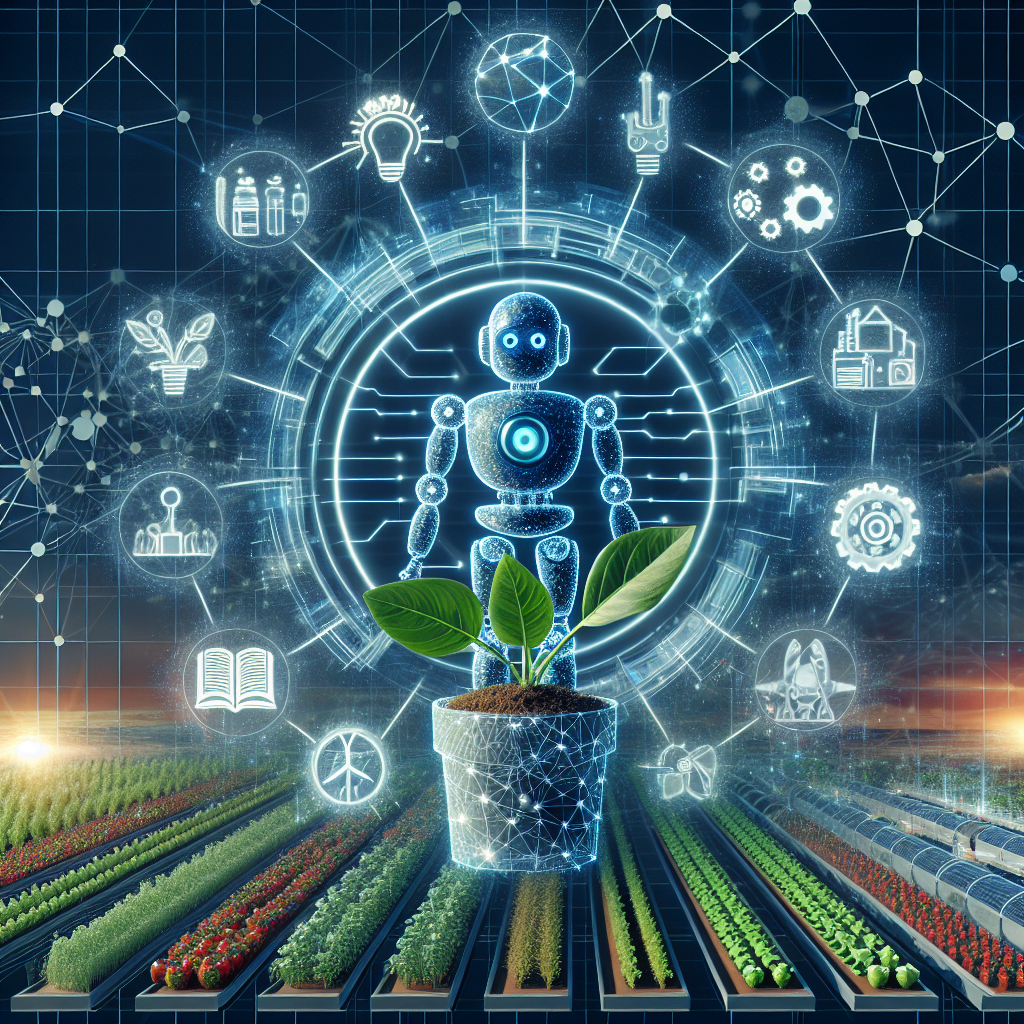The Future of AI in Sustainable Food Systems
Artificial Intelligence (AI) is revolutionizing the way we produce, distribute, and consume food. From precision agriculture to food waste reduction, AI technologies have the potential to transform our food systems and make them more sustainable. In this article, we will explore the role of AI in sustainable food systems and discuss the opportunities and challenges it presents.
AI in Precision Agriculture
One of the key areas where AI is making a significant impact is in precision agriculture. By using AI-powered drones, sensors, and other technologies, farmers can monitor their crops more efficiently, optimize irrigation and fertilization, and detect diseases and pests early on. This not only improves crop yields and reduces input costs but also minimizes the environmental impact of agriculture by reducing the use of water, pesticides, and fertilizers.
AI can also help farmers make better decisions by analyzing data on weather patterns, soil conditions, and market trends. By combining this information with advanced algorithms, AI systems can provide farmers with real-time recommendations on when to plant, harvest, and sell their crops. This can lead to more sustainable farming practices and higher profits for farmers.
AI in Food Processing and Distribution
AI is also being used to improve the efficiency of food processing and distribution. By using machine learning algorithms, food companies can optimize their production processes, reduce energy consumption, and minimize food waste. For example, AI systems can predict equipment failures before they occur, analyze customer preferences to optimize product offerings, and optimize transportation routes to reduce carbon emissions.
AI can also help food companies ensure food safety and quality by analyzing data from sensors and cameras to detect contaminants and defects in food products. By using AI-powered systems, food companies can reduce the risk of foodborne illnesses and product recalls, thereby improving consumer trust and loyalty.
AI in Food Waste Reduction
Food waste is a major challenge in our current food systems, with around one-third of all food produced globally going to waste. AI technologies offer promising solutions to this problem by enabling better inventory management, forecasting demand more accurately, and optimizing supply chains. By using AI algorithms to analyze data on sales, weather patterns, and consumer behavior, food retailers can reduce overstocking and spoilage, leading to significant reductions in food waste.
AI can also help consumers reduce food waste at home by providing personalized meal planning and shopping recommendations. By analyzing data on food preferences, dietary restrictions, and expiration dates, AI-powered apps can suggest recipes, create shopping lists, and remind users to use up perishable items before they spoil. This can help individuals make more sustainable food choices and reduce their environmental impact.
Challenges and Opportunities
While AI offers many promising opportunities for sustainable food systems, there are also challenges that need to be addressed. One of the main concerns is the potential for AI to exacerbate existing inequalities in the food system. For example, small-scale farmers and food producers may not have access to the technology and resources needed to adopt AI solutions, leading to further concentration of power and wealth in the hands of large corporations.
Another challenge is the ethical implications of AI in food systems, such as concerns about data privacy, algorithmic bias, and job displacement. As AI becomes more integrated into the food industry, it is important to ensure that ethical guidelines and regulations are in place to protect consumers, workers, and the environment.
Despite these challenges, AI has the potential to revolutionize our food systems and make them more sustainable. By harnessing the power of AI technologies, we can optimize resource use, reduce food waste, and improve the resilience of our food supply chains. With the right policies and investments, AI can help us build a more equitable, efficient, and environmentally friendly food system for future generations.
FAQs
Q: How is AI being used in precision agriculture?
A: AI is being used in precision agriculture to monitor crops, optimize irrigation and fertilization, detect diseases and pests, and provide real-time recommendations to farmers. By analyzing data on weather patterns, soil conditions, and market trends, AI systems can help farmers make better decisions and improve crop yields.
Q: How can AI help reduce food waste?
A: AI can help reduce food waste by enabling better inventory management, forecasting demand more accurately, and optimizing supply chains. By analyzing data on sales, weather patterns, and consumer behavior, AI systems can help food retailers reduce overstocking and spoilage, leading to significant reductions in food waste.
Q: What are the ethical implications of AI in food systems?
A: The ethical implications of AI in food systems include concerns about data privacy, algorithmic bias, and job displacement. As AI becomes more integrated into the food industry, it is important to ensure that ethical guidelines and regulations are in place to protect consumers, workers, and the environment.

